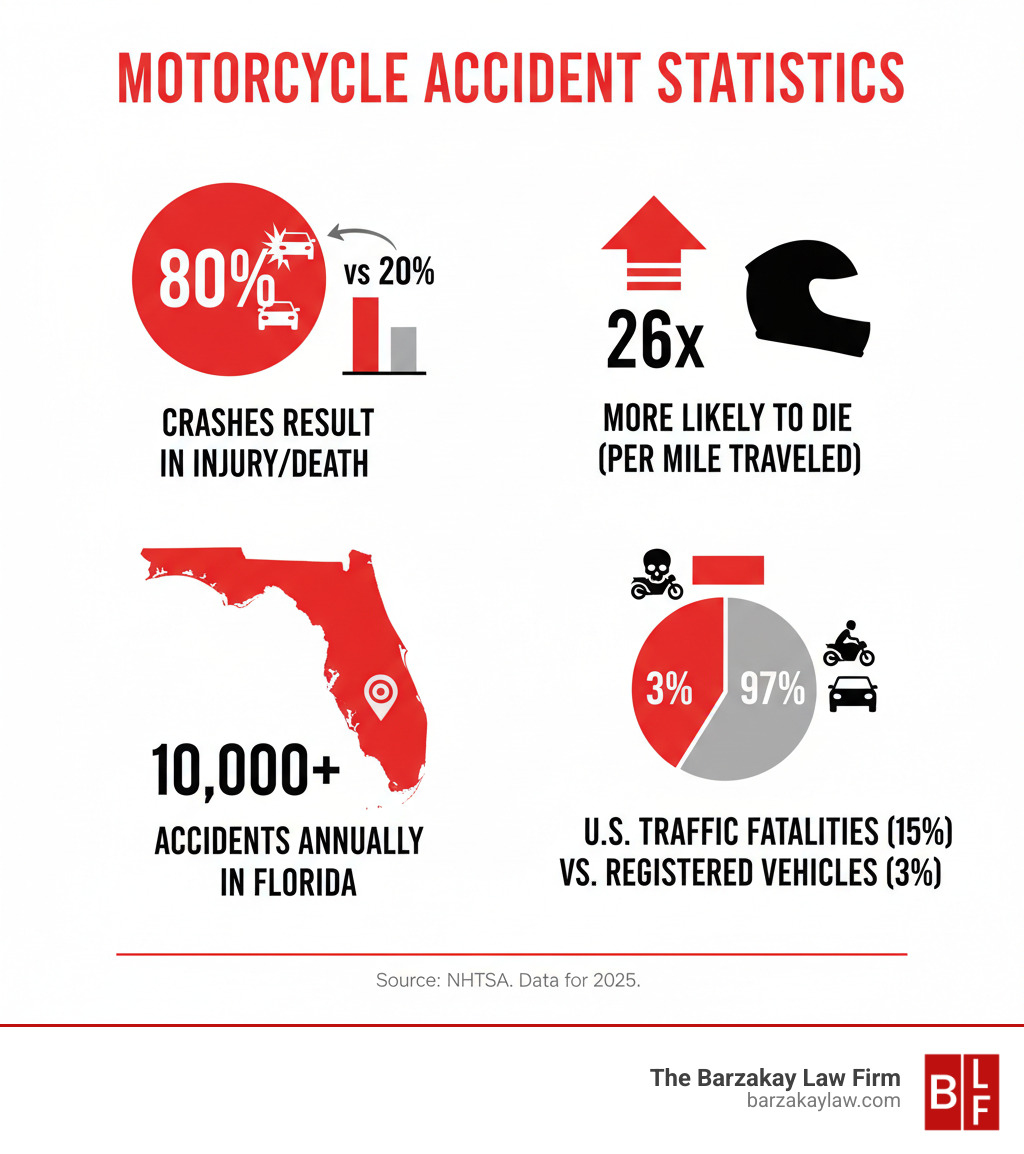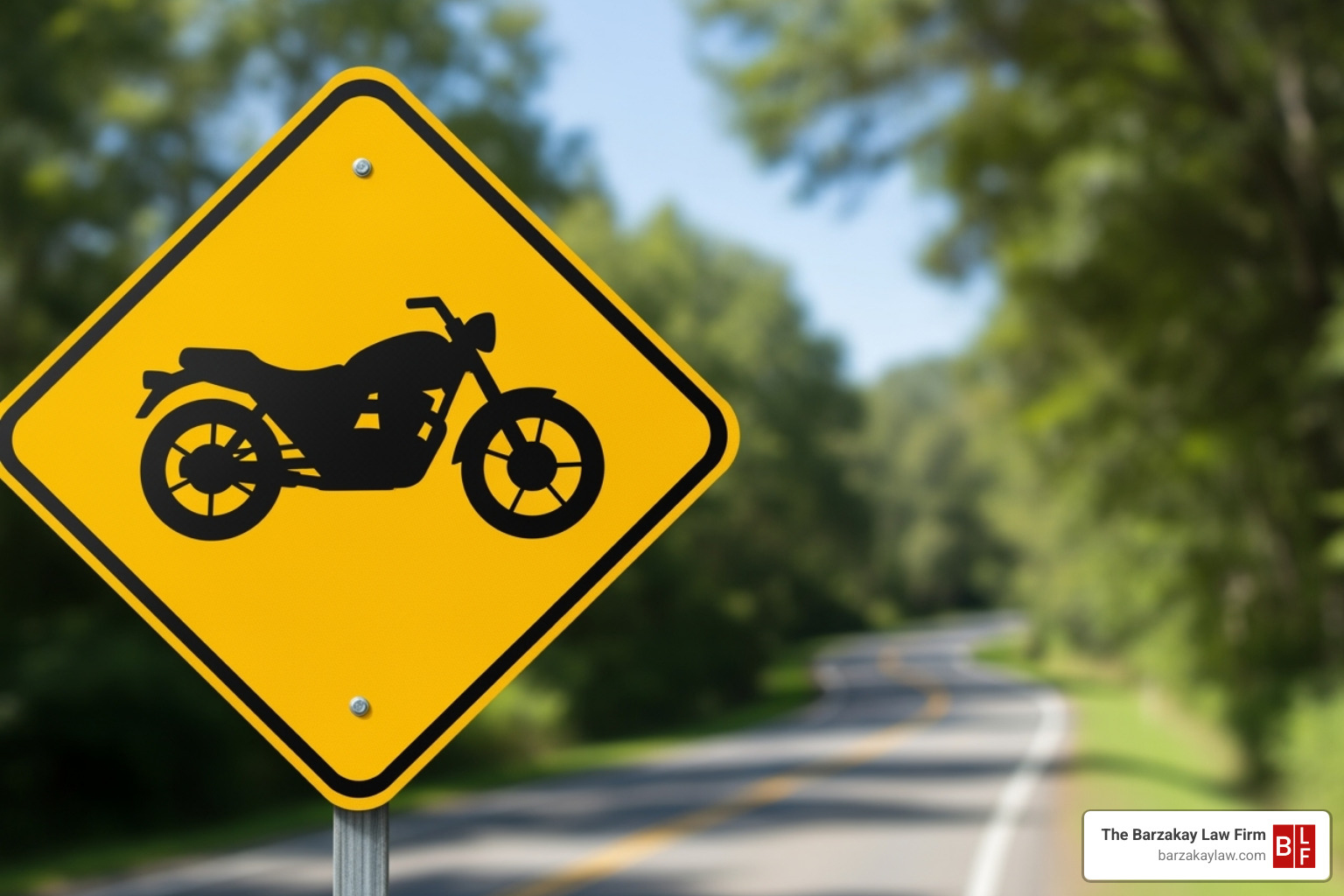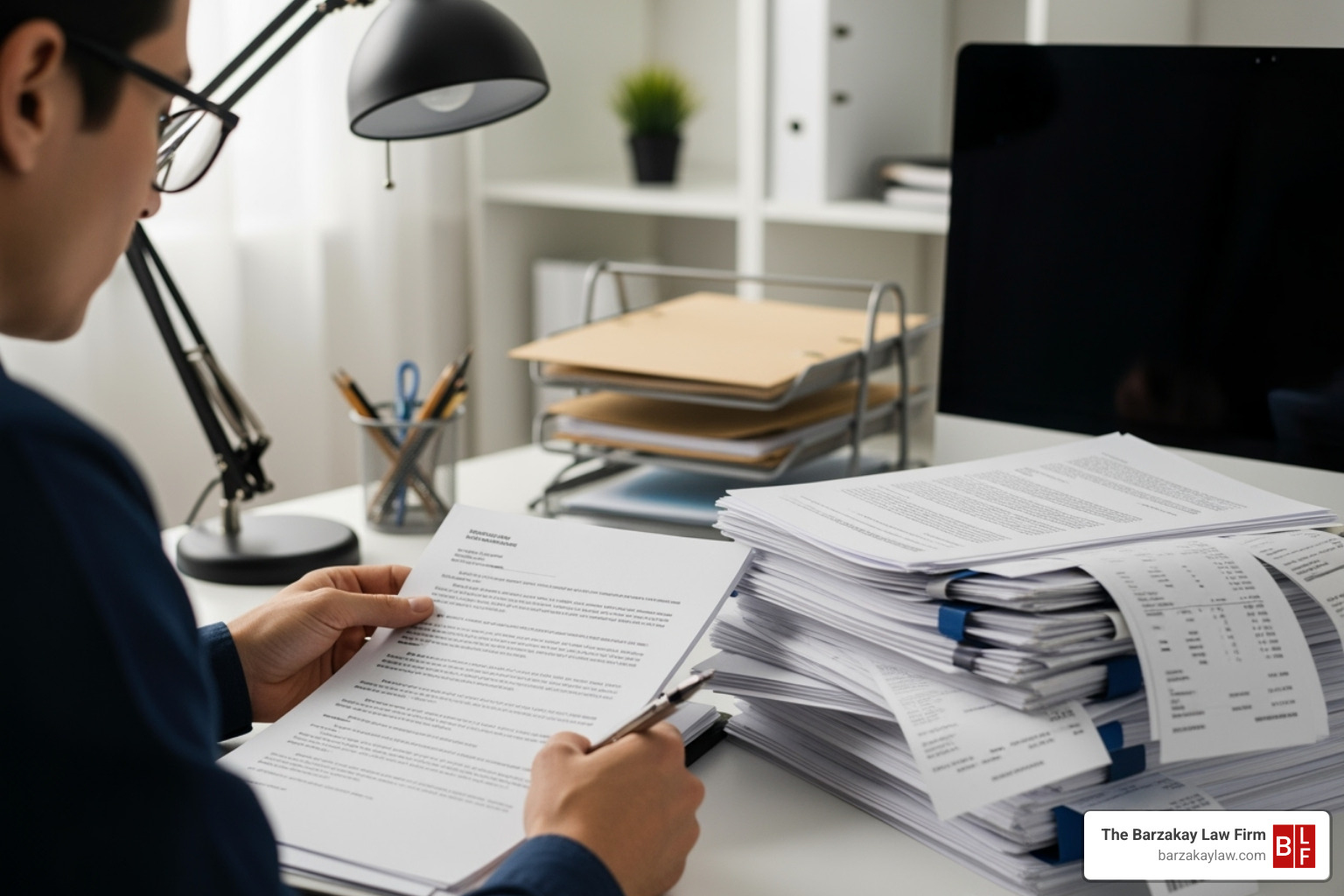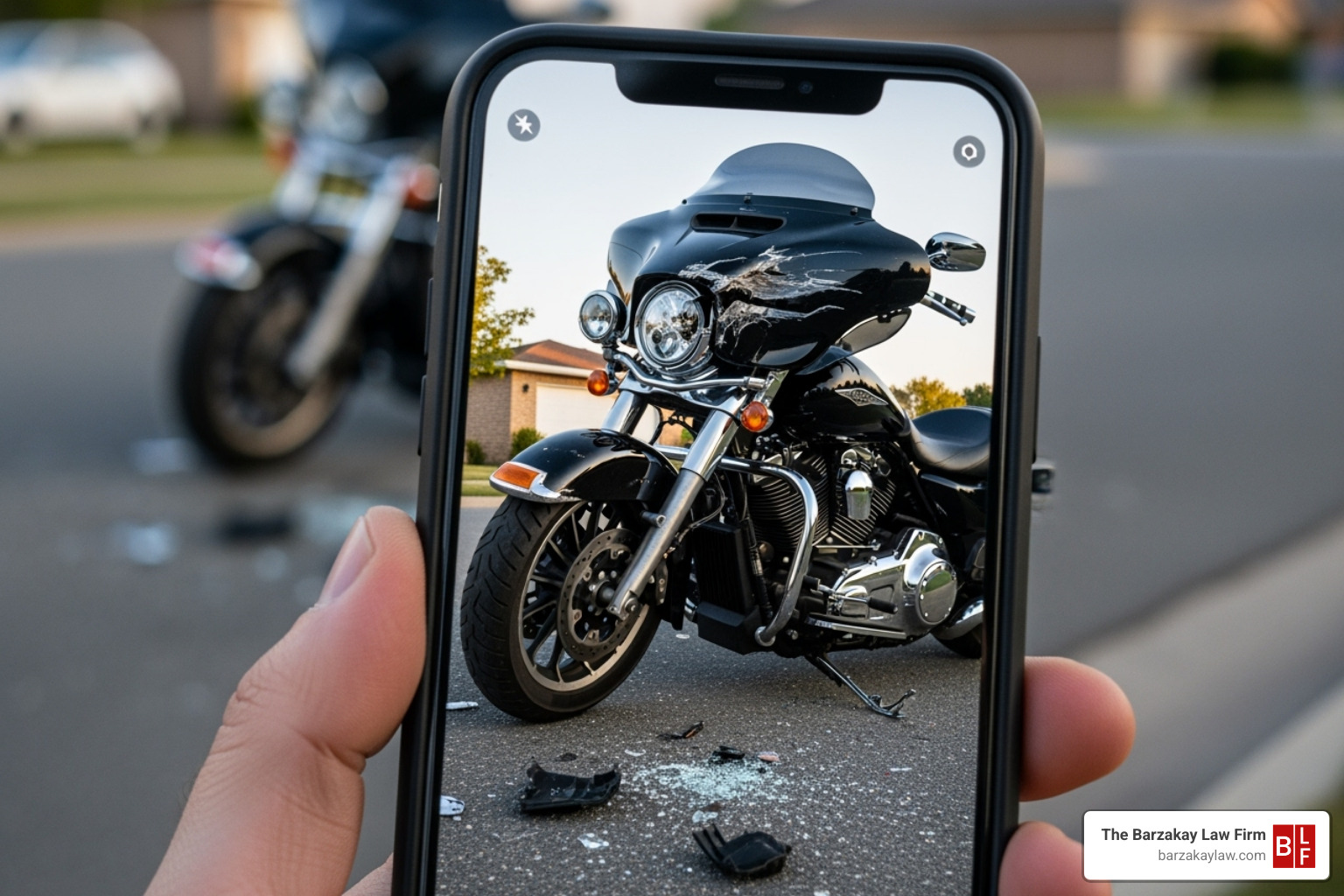The Devastating Reality of Motorcycle Accidents in South Florida
Motorcycle personal injury cases are among the most serious in Florida. Riders face catastrophic consequences when crashes occur, and the statistics paint a grim picture of the dangers of two-wheeled travel.
If you or a loved one was injured in a motorcycle accident, here’s what you need to know:
- You face significantly higher risks – Motorcyclists are about 26 times more likely to die in a crash than car occupants per vehicle mile traveled.
- Most accidents result in injury – 80% of motorcycle crashes cause injury or death, compared to just 20% of car accidents.
- You may be entitled to compensation – Even if partially at fault, Florida’s comparative negligence law allows recovery of damages.
- Time limits apply – You typically have two years from the accident date to file a lawsuit in Florida.
- Legal help is available at no upfront cost – Most motorcycle accident lawyers work on contingency, meaning they only get paid if you win.
The roads of Hollywood, Miami, and Boca Raton see thousands of motorcycle accidents annually. Florida records over 10,000 motorcycle accidents each year, resulting in hundreds of deaths and thousands of serious injuries.
When a motorcycle collides with a larger vehicle, the rider absorbs the full impact. Lacking the protection of a car’s frame, airbags, and seatbelts, motorcyclists are 30 times more likely to suffer a fatal injury than car occupants.
The aftermath brings overwhelming challenges: mounting medical bills, lost wages, and profound pain and suffering. For families who lose a loved one, the emotional and financial toll is devastating. Understanding your legal rights is the first step toward recovery.
High Stakes on Two Wheels: Understanding the Risks and Injuries
Riding a motorcycle on South Florida’s coastal roads offers a unique sense of freedom, but this exposure is also what makes it so dangerous. With no metal frame, airbags, or seatbelts, a rider’s body takes the full force of any collision.
The statistics are sobering. Motorcyclists are nearly 27 times more likely to die per mile driven than people in cars. In Florida, about 60% of motorcycle accidents involving another vehicle are caused by the other driver, often with the excuse, “I didn’t see him.” You can see more figures in the National Highway Traffic Safety Administration’s (NHTSA) statistics on motorcycle fatalities.
Common Causes of Motorcycle Accidents
Most motorcycle personal injury cases in Hollywood, Miami, and Boca Raton follow familiar patterns:
- Left-turn collisions: A car turns left into the rider’s path, often because the driver failed to see the motorcycle’s smaller profile.
- Unsafe lane changes: Drivers merge without checking their blind spots, moving directly into a rider.
- Distracted driving: A driver using a phone or GPS has a much slower reaction time and may not notice a motorcycle at all.
- Rear-end crashes: Minor for cars, these are devastating for unprotected riders.
- Road hazards: Potholes, gravel, or oil slicks that cars handle easily can cause a motorcycle to skid.
- Impaired driving: Alcohol or drugs impair the judgment and reaction time needed to share the road safely.
- Dooring accidents: A person in a parked car opens their door into a rider’s path, leaving no time to react.
Devastating Consequences: Common Motorcycle Accident Injuries
The injuries from motorcycle accidents are often catastrophic and can include:
- Road rash: More than a scrape, severe road rash can remove skin down to muscle and bone, requiring skin grafts and leading to permanent scarring and nerve damage.
- Broken bones: Crashes often cause complex fractures requiring surgery, metal plates, and extensive physical therapy.
- Traumatic Brain Injuries (TBIs): Even with a helmet, the force of impact can cause the brain to shift, leading to memory loss, personality changes, and permanent cognitive impairment.
- Spinal cord injuries: Damage to the spinal cord can result in partial or complete paralysis, profoundly altering a victim’s life.
- Internal injuries: Blunt force trauma can damage organs and cause internal bleeding, which may not be immediately apparent.
- Wrongful Death: When a loved one dies due to another’s negligence, families may file a wrongful death claim for their losses.
Navigating Florida’s Motorcycle Laws
Florida’s weather makes it a paradise for motorcyclists, but riders in Hollywood, Miami, or Boca Raton must understand the state’s specific rules. These laws are designed for safety and can significantly impact a motorcycle personal injury claim. Insurance companies will use any violation to reduce or deny compensation, so knowing these regulations is crucial.
Licensing, Helmet, and Insurance Requirements
Florida requires a motorcycle endorsement on your driver’s license for engines over 50cc, which involves passing a test and a Basic Rider Course.
Florida’s helmet law is unique. Riders under 21 must wear a helmet. Those over 21 can ride without one only if they carry at least $10,000 in medical insurance coverage for motorcycle crash injuries, per Florida Statutes §316.211. Regular health insurance does not count.
Motorcyclists are not required to carry Personal Injury Protection (PIP) insurance, meaning they must seek compensation from the at-fault driver’s insurance. However, Florida does require minimum liability coverage: $10,000 in Bodily Injury Liability per person, $20,000 per accident, and $10,000 in Property Damage Liability.
Rules of the Road for Florida Riders
Florida also has specific traffic rules for motorcycles:
- Lane splitting is illegal in Florida, as stated in Florida law. This includes riding between lanes of stopped or moving traffic.
- Motorcycles are limited to two abreast in a single lane.
- Headlights must be on at all times to improve visibility.
- You must wear proper eye protection like goggles or a face shield.
- The legal limit for DUI is 0.08% blood alcohol concentration. An impaired riding charge can weaken any personal injury claim.
Building Your Motorcycle Personal Injury Claim in Florida
After a motorcycle crash, building a strong motorcycle accident injury claim is essential for compensation. This involves proving fault and documenting every way the accident has affected your life. The process is complex, which is why our firm is here to handle the legal details while you focus on healing.
Proving Fault: Florida’s Comparative Negligence Rule
To prove fault, we must establish four elements:
- Duty of Care: The other party had a legal obligation to operate their vehicle safely.
- Breach of Duty: They failed in that obligation through a careless act, like texting while driving.
- Causation: Their breach of duty directly caused your crash and injuries.
- Damages: You suffered actual losses, such as medical bills and lost wages.
To build this case, we gather evidence like police reports, witness statements, and analysis from accident reconstruction professionals.
Florida’s pure comparative fault model means you can recover damages even if you are partially at fault, but your award is reduced by your percentage of fault. For example, if you have $100,000 in damages and are 20% at fault, you receive $80,000. However, a recent change in law bars any recovery if you are found 50% or more at fault. This makes apportioning blame critical, as insurance companies will try to shift fault onto you.
Maximizing Your Compensation: Types of Damages
Compensation, or damages, in a motorcycle personal injury case should cover all your losses.
Economic damages are tangible losses. This includes all past and future medical expenses, from the ambulance ride to ongoing therapy. It also covers lost income and any reduction in your future earning capacity if your injuries prevent you from returning to your previous job. Property damage to your motorcycle and gear is also included.
Non-economic damages compensate for intangible losses. Pain and suffering covers the physical agony and discomfort you’ve endured. For more on this, see our guide on pain and suffering settlements. Emotional distress accounts for anxiety, depression, or PTSD from the crash. Loss of enjoyment of life compensates for activities you can no longer do. Loss of consortium recognizes the impact on a victim’s spouse and family. In rare cases of extreme recklessness, punitive damages may be awarded to punish the wrongdoer, as outlined in Florida Statutes §768.72(2).
Dealing with Insurance Companies
Insurance adjusters are not on your side; their job is to minimize payouts. We recommend reading our guide on navigating your insurance claim and being aware of these common tactics:
- Recorded Statements: Adjusters use these to ask leading questions and get you to say something that can be used against you. You are not required to provide one.
- Lowball Settlement Offers: They make quick, low offers hoping you’ll accept before you know the full value of your claim.
- Blaming Motorcyclists: They exploit stereotypes to suggest you were reckless, even when evidence shows otherwise.
- Delaying Your Claim: They drag out the process, hoping financial pressure will force you to accept a low offer.
- Requesting Complete Medical History: They hunt for pre-existing conditions to argue your injuries aren’t from the crash. Be cautious about signing broad medical releases.
- Monitoring Social Media: They will use photos and posts out of context to argue you aren’t as injured as you claim. It’s best to stay off social media while your claim is pending.
This is why we tell every client: don’t talk to insurance companies without a lawyer. Let us handle all communication to protect you from these tactics.
Critical Steps to Take After a Motorcycle Crash
What you do in the moments after a motorcycle crash can dramatically affect your health and your motorcycle personal injury claim. Your actions protect your health, preserve evidence, and safeguard your legal rights. For more, see our guide on mistakes to avoid after an accident.
At the Scene: Immediate Actions
- Call 911. A police report creates an official record of the accident.
- Seek immediate medical attention. Adrenaline can mask serious injuries like concussions or internal bleeding. A medical record also links your injuries directly to the crash.
- If you are able, take photos and videos of everything: vehicle damage, road conditions, skid marks, and the overall scene.
- Exchange information with all drivers (names, insurance, license plates) and get contact information from any witnesses.
- Do not admit fault. Stick to the facts when speaking with police. Fault is a complex legal issue.
After the Crash: Protecting Your Claim
- Follow all medical advice. Attend all appointments and therapy sessions. Gaps in treatment can be used against you by insurance companies.
- Keep detailed records. Save all bills and receipts. A journal documenting your daily pain and limitations can serve as powerful evidence. Our firm helps clients obtain and compile their medical records to build the strongest case.
- Report the accident to your insurer, but keep the report brief and factual. Do not give detailed statements without legal guidance.
- Stay off social media. Insurance companies monitor your accounts and can twist innocent posts to argue you aren’t seriously injured.
- Consult with a motorcycle personal injury lawyer before speaking with any insurance adjusters. They are trained to minimize payouts. When you hire a lawyer, we handle all communication with insurance companies, allowing you to focus on healing. We work on a contingency fee basis, so you don’t pay unless we win your case.
Frequently Asked Questions about Motorcycle Personal Injury Claims
After a motorcycle accident in Hollywood, Miami, or Boca Raton, you likely have many questions. Here are answers to some common questions about motorcycle personal injury claims.
How long do I have to file a motorcycle accident lawsuit in Florida?
In Florida, the statute of limitations for a negligence-based motorcycle personal injury lawsuit is generally two years from the date of your accident, as per Florida Statutes §95.11(5). If you miss this deadline, you lose your right to sue.
There are some exceptions, such as for wrongful death claims or claims against a government entity, which have different time limits. It’s critical to act quickly, as evidence can disappear and memories fade.
How much does it cost to hire a motorcycle accident lawyer?
Hiring a motorcycle personal injury lawyer should not cost you anything upfront. Like most personal injury attorneys, we work on a contingency fee basis. This means our fee is a percentage of the compensation we recover for you. If we don’t win your case, you owe us no attorney fees.
We offer free consultations to discuss your case and explain your options. We may also advance case expenses, such as filing fees, which are reimbursed from the settlement. This structure ensures everyone has access to legal representation.
Can I still recover damages if I wasn’t wearing a helmet?
Riders often worry that not wearing a helmet will hurt their claim. In Florida, riders over 21 are legally allowed to ride without a helmet if they carry at least $10,000 in specific medical insurance coverage, per Florida Statutes §316.211.
Not wearing a helmet does not make you at fault for a crash caused by another driver’s negligence. The issue can affect the amount of damages you recover for a head injury. However, Florida law generally makes evidence of not wearing a helmet inadmissible in a civil lawsuit to prove fault or reduce damages for riders who meet the legal requirements.
Still, an insurance company may argue that your choice contributed to your injuries under the comparative negligence rule. An experienced lawyer can counter these tactics and protect your rights.
Conclusion
Riding in South Florida offers a great sense of freedom, but a motorcycle personal injury can turn your world upside down. You shouldn’t have to battle insurance companies and steer complex laws while trying to recover. Our firm exists to take that burden off your shoulders so you can focus on your health.
We have guided countless riders in Hollywood, Miami, Boca Raton, and across Florida. We understand insurance company tactics and Florida’s negligence laws, and we are committed to fighting for the compensation you deserve.
Our promise to you: We work on a contingency fee basis, meaning you pay nothing unless we win your case. No upfront costs, just dedicated representation.
The two-year statute of limitations is ticking, and evidence is most effectively preserved right after an accident. The sooner you contact us, the stronger your case will be.
You’ve been through enough. Let us handle the legal fight. Contact The Barzakay Law Firm today for a free case evaluation. Get the help you need from a Miami bike accident lawyer.





